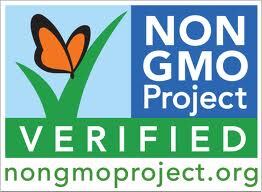As the debate on GMO labeling rages on, one of the most contentious issues is what exactly can be labeled “all natural.” The FDA has yet to finalize a 12-year-old draft guidance document outlining the labeling of foods that contain genetically modified ingredients.
The agency doesn’t object to the term “natural” being used on food labels as long as it is used in a truthful, not misleading way and the product doesn’t contain added color, artificial flavors or synthetic substances.
“The term ‘natural’ seems vague, but it also still seems to be worth something, at least to some consumers,” Ricardo Carvajal, FDA regulatory counsel at Hyman, Phelps & McNamara, told FoodNavigator-USA. “And it’s cheap, and doesn’t require certification. So you’ve got something that has some value and it’s inexpensive at least compared to some of the other marketing terms like organic.”
But Stephen Gardner, director of litigation at the Center for Science in the Public Interest, told FNU that while company lawyers have taken to saying that the term has no meaning, marketers know what consumers believe “natural” means—otherwise they’re not doing their jobs, he added.
“A product being completely natural is not a guarantee of healthfulness. High fructose corn syrup is clearly not natural, but there's minimal if any difference in terms of health than the same amount of sugar, which is clearly natural,” he claimed. “An organic product, on the other hand, has most of the attributes that consumer want when they buy natural—chickens can't be caged, no GMOs, and the like. But consumers perceive, very likely correctly, that organic products cost more than non-organic ones. Large chain supermarkets are making great strides in bringing organic foods to everyone, but we aren't there yet.”

Where natural and GMO labeling collide
Deceptive advertising lawsuits and demands for labeling transparency from consumer advocacy groups have piled up in recent years, preempting big food manufacturers such as Campbell’s, Pepsico (Naked), and Ben & Jerry’s to phase out “all-natural” claims altogether from their packaging on selected products.
“The movement to label genetically modified organisms has dramatically increased consumer awareness of not only the lack of transparency in labeling, but also the lack of truth in labeling,” said Katherine Paul, director of communications and development at the Organic Consumers Association. “Where the FDA has failed to step in and protect consumers from the lack of truth and transparency in labeling, consumers have stepped in by boycotting manufacturers who continue to mislead consumers, and by holding them accountable through lawsuits.”
This summer, the OCA petitioned the FDA to make it illegal to put a “natural” label on any foods containing GMOs, but the organization believes it will take a combination of marketplace pressure and lawsuits to force manufacturers to stop using the label, rather than a move by the FDA.
Phasing out of ‘natural’ may be driven by consumers
So will the phase-out of “natural” become the trend among food manufacturers? Carvajal says he hasn’t heard much in that line of thinking from his clients, and doesn’t expect it will be a prominent issue on the FDA’s long agenda list.
“FSMA is so front and center and where bulk of resources will continue to go in 2014,” he said. “We’re also seeing more noise about the updated nutrition labeling and menu labeling hitting streets early in 2014. Just those things right there add up to quite a bit of excitement. Then the FDA sweetened the pot by tossing in issue of partially hydrogenated oils. Who knows what other surprises they have in store for us?”
The OCA, on the other hand, sees the trend of consumer pressure continuing and “ultimately forcing manufacturers to phase out the use of ‘natural’ on products that are anything but,” Paul said.
Gardner says it’s highly unlikely the FDA or large companies will move to address either issue. “I've been asked repeatedly if the need to address the GMO question makes it more likely that FDA will take up the issue,” he said. “My answer always is that I suspect it's just the contrary—if the FDA didn't want to spend the time defining natural generally, it is very unlikely to want to spend far more time addressing the GMO question.”
Regardless of increased focus on it in recent months, the agency “appears loathe to address this issue,” he said, adding that he can’t predict whether companies will act in advance of any legislation, given their past behavior.
“I never try to judge the extent to which food companies' avarice will encourage them to continue deceptions, so it's not really possible to predict that they will see the writing on the wall,” he said. “Enlightened self-interest would seem to mandate getting rid of the term, but companies don't always act in what seems to be a rational manner.”
